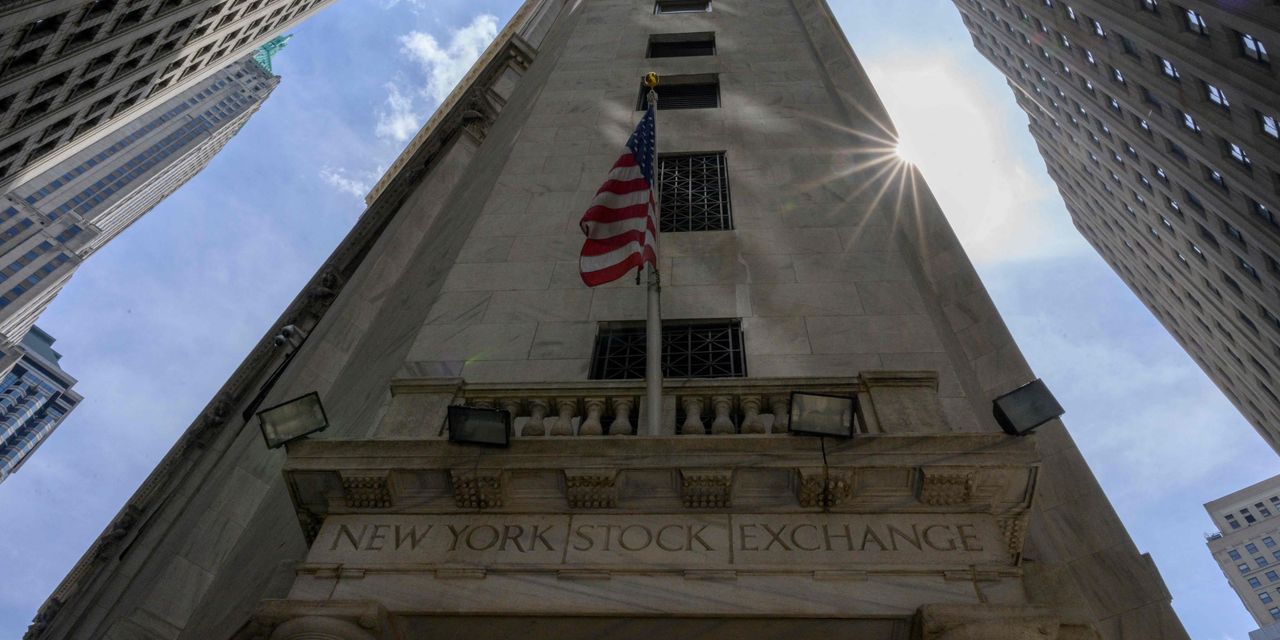The U.S. stock market’s big run-up in 2023 left the S&P 500 near a “tipping point” that set the index up for a choppier second half of the year, according to Ned Davis Research’s chief U.S. strategist Ed Clissold.
The S&P 500 gained 19.5% this year through July for its best seven months of a year since 1997. The rally put the popular stock-market benchmark near a tipping point in terms of momentum and mean reversion, Clissold said in an Aug. 2 note.
After such strong gains, he looked at what historically happened to the S&P 500 after rising at least 15% during the first seven months of a year. Clissold found that “over the last five months of the year, the index rose 86.4% of the time by a median of 7.0%.”
“For now, we are maintaining our overweight to stocks in our U.S. asset allocation,” he said. “Mean reversion has been more likely if year-to-date gains have exceeded 20%.”
Clissold said his findings provide “only a glimpse into the full story of how each of those years unfolded” after the S&P 500 rallied at least 15% through July, saying “blowoff tops, recessions, wars, Fed cycles, and other macro drivers determined whether the good times continued to roll.”
But in most of the cases, the S&P 500’s momentum waned over the last five months of the year, according to the note.
“Strong starts to the year are followed by smaller gains the rest of the year, on average,” said Clissold. “In only one case, 1935, did the S&P 500 post a bigger gain after July than before it.”
Read: ‘Rare’ rally in cyclical stocks largely over, Goldman warns, after ETF investors favored such areas of the market
The S&P 500 has slipped 1.9% so far in August, largely courtesy of a sharp drop on Wednesday. But on Thursday, it remained up more than 17% for the year in an economy that’s been resilient despite the Federal Reserve’s interest-rate hiking campaign begun in early 2022.
See: A giant wealth transfer explains why the economy isn’t responding to Fed policy: Ray Dalio
Major U.S. stock indexes closed modestly lower Thursday, as investors weighed fresh economic data showing a slight rise in initial jobless claims and an increase in labor productivity during the second quarter. The Dow Jones Industrial Average
DJIA
fell 0.2%, while the S&P 500
SPX
slid 0.3% and the Nasdaq Composite
COMP
declined 0.1%, according to FactSet data.
While the Fed has been tightening its monetary policy to bring down elevated inflation, the U.S unemployment rate has so far remained low.
“The most aggressive tightening cycle in at least 40 years was the primary reason for last year’s equity bear market,” said Clissold. “The anticipation of a slower pace of rate hikes and eventual end to the tightening cycle has been one of the main drivers of this year’s bull market.”
See: Fed’s Barkin says economy might avoid recession if inflation continues to ease
Read the full article here





